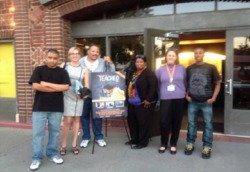By Kelly Amis
Public school systems had been failing for decades -- especially in poor, urban neighborhoods. This is not news. When the idea of charter schools came along-- public schools that would 1) run themselves independently of the bureaucracies that were/are a huge part of the problem, 2) would get to hire their own staff members ensuring 'fit' with the school, AND 3) would be held accountable for results in educating students -- many amazing people stood up and said they would create and run great public schools where they were needed the most. You can see some great examples of these leaders and schools in our film Unchartered Territory. Some not-so-great charter schools have been launched as well. The difference is that when chartered public schools fail, they are required to improve or close; they don't get to keep operating for generations of failure.
To argue that charter public schools are taking money from the traditional public school system doesn't make sense; they are a part of the public education system. If parents are choosing them -- and children are benefitting from them- - it's even an odd argument to make. In most cases, the charter schools are spending less but doing more with the funding they receive.
How is that possible? Because their funding actually gets into the classroom -- to the school level. It's not sucked up by huge bureaucracies, or to pay salaries of people who are no longer in the classroom but can't be fired due to contract terms, or to work around archaic and indifferent policies that have evolved over time to protect adult interests over the students'.
The charter school design is an alternative public school model. Students' lives and future generations of families are being positively impacted by having these alternative schools appearing in their neighborhoods. The question shouldn't be "How do we stop funding from going to the alternative schools that parents are choosing for their children?" but "What do we need to do to streamline and improve the traditional system so that funding and control gets to the school level and is used effectively and in an accountable way in every school"?
To learn more, please read this great article by Mashea Ashton, CEO of the Newark Charter School Fund:
Moody's Report on Charter Schools Misses the Real Problem
The link: http://huff.to/1hmAwbj Follow Mashea on Twitter: @Mashea
Moody's Investors Service recently released a report claiming the rise in enrollment in public charter schools could pose a dangerous financial risk for traditional public schools, especially in urban areas with weak economies. Yet blaming charter schools for financial woes in the school district is unfair, and it drives a poisonous wedge between administrators, educators and the broader community, who should be working together to provide kids with access to high-quality education.
Public charter schools have long been the scapegoat for traditional public schools' woes. Moody's report follows the usual line of reasoning: charter schools have seen increasing enrollment, which means students are leaving traditional public schools. Because the students are leaving, those schools are losing funding, and they are struggling to stay open.
It's easy to blame schools' problems on a lack of funding. But that twists the issue. Basic fairness dictates that public funds should follow the students to the schools that are best able to provide a quality education, whether they are traditional public schools or public charter schools. (And in practice, charter schools are the ones getting the shorter end of the stick, on average receiving 70 percent of the per-pupil funding expended by district schools.)
The Moody's report highlights a couple of school districts with serious financial health issues predating charters that are struggling to adapt, but essentially ignores the many other urban districts where public charters and the district are able to grow together and thrive in fine financial health. The simple truth is that the schools that are failing are failing for other reasons, such as counterproductive policies, entrenched bureaucracy and a refusal by stakeholders to work together to find solutions that result in the best education for kids.
Outdated policies keep kids trapped in underperforming schools. For instance, hiring and firing policies in 11 states still adhere to Last In, First Out (LIFO), which rewards teacher tenure, not ability or success rates with student performance. Too many underperforming schools are allowed to remain open year after year, draining resources and using up space that could be allocated to schools that actually meet students' needs. It's problems like these that lead parents and students to look to charters for better educational opportunities in the first place. In Newark, N.J., support for public charter schools is overwhelming, with 71 percent of respondents supporting expansion of the sector.
These are very real challenges that face many urban school districts across the United States. Slowing the growth of charter schools won't solve the problems, though; it will only trap students in failing schools by taking away viable, affordable options for high-quality education. That's the main point Moody's report seems to miss. The true tragedy of failing public schools is that they're failing our children, who deserve better.
While resources and government relations can play an important role, they should never take precedence over the students themselves. It's important to remember that the funds raised through state and local taxpayers for education are dedicated to children, not districts, charters or any particular bureaucracy. Leaders in these struggling communities need to stop pointing fingers and start working together to expand access to high-quality education. Every legislator, bureaucrat, administrator, educator, reformer and parent should be asking how we can provide a system of great schools -- not a great school system -- to best serve our children.






